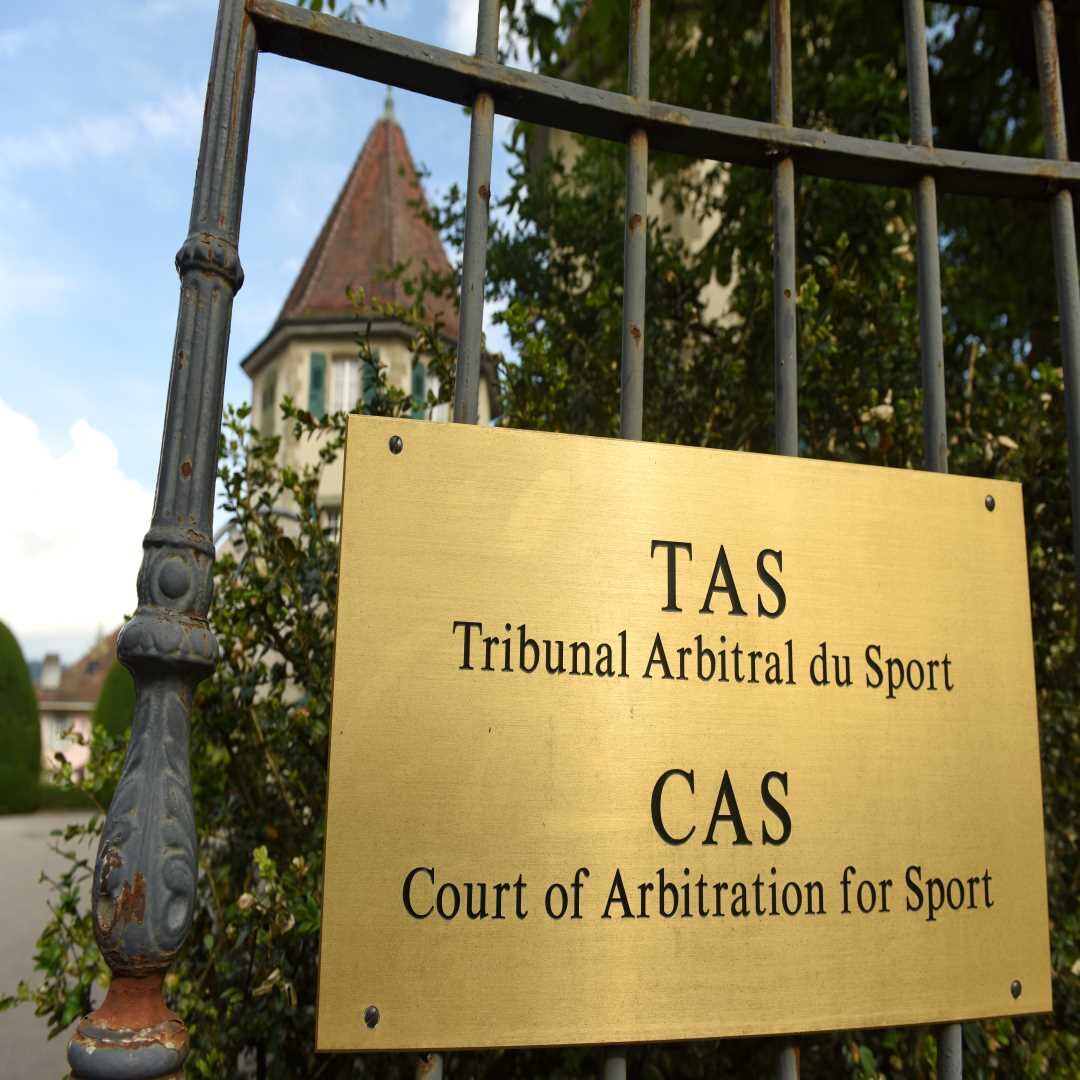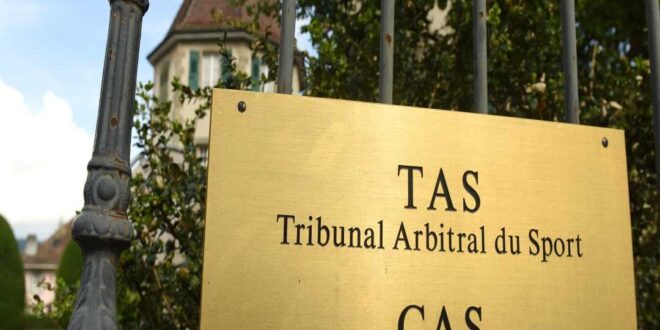Sports arbitration has emerged as a prominent mechanism for resolving disputes within the realm of athletics. It offers a specialized forum tailored to the unique complexities of the sports industry, ensuring fair and efficient outcomes while upholding the integrity of the game.
This comprehensive overview delves into the historical evolution, types and jurisdictions, legal framework and procedures, key issues and challenges, and future trends and developments in sports arbitration. Through a blend of insightful analysis and practical examples, we unravel the intricate workings of this specialized field, empowering readers with a thorough understanding of its significance and impact.
Historical Evolution of Sports Arbitration
The origins of sports arbitration can be traced back to the ancient Olympic Games, where disputes were resolved by a panel of judges. In the modern era, sports arbitration emerged in the late 19th century as a way to resolve disputes between athletes and sports organizations.
One of the key milestones in the history of sports arbitration was the establishment of the Court of Arbitration for Sport (CAS) in 1984. CAS is an independent international tribunal that resolves disputes between athletes, sports organizations, and other parties involved in sport.
Landmark Cases
Several landmark cases have shaped the evolution of sports arbitration. These cases include:
- The Oscar Pistorius case (2015): This case involved the South African sprinter who was found guilty of murdering his girlfriend. The CAS upheld the decision of the International Association of Athletics Federations (IAAF) to ban Pistorius from competing in the Olympics.
- The Caster Semenya case (2019): This case involved the South African middle-distance runner who was found to have naturally high levels of testosterone. The CAS ruled that Semenya must take medication to lower her testosterone levels in order to compete in certain events.
Types and Jurisdictions of Sports Arbitration
Sports arbitration tribunals vary in their types and jurisdictions, each with its own authority and advantages.
International Tribunals
These tribunals handle disputes involving international sports organizations and athletes. Examples include:
- Court of Arbitration for Sport (CAS): The primary international sports arbitration tribunal, with jurisdiction over disputes arising from major international sporting events and organizations.
- International Council of Arbitration for Sport (ICAS): Specializes in resolving disputes related to the Olympic Games.
Advantages: Impartiality, global reach, and expertise in international sports law.
Disadvantages: Can be expensive and time-consuming.
National Tribunals
These tribunals handle disputes within specific countries or regions. Examples include:
- American Arbitration Association (AAA): One of the largest arbitration providers in the United States, handling sports disputes.
- Sports Resolution (UK): A UK-based tribunal specializing in sports arbitration.
Advantages: More accessible and often less expensive than international tribunals.
Disadvantages: May lack the expertise and impartiality of international tribunals.
Ad Hoc Tribunals
These tribunals are formed specifically to resolve a particular dispute. They are typically composed of experts in the relevant sport or field.
Advantages: Flexibility and customization to specific disputes.
Disadvantages: May lack the established procedures and authority of permanent tribunals.
Legal Framework and Procedures

Sports arbitration is governed by a complex legal framework that includes national laws, international conventions, and the rules and regulations of sports governing bodies. These frameworks provide the basis for the conduct of arbitration proceedings and the enforcement of arbitration awards.
Procedural Rules and Regulations
Arbitration proceedings are typically conducted in accordance with the rules and regulations established by the relevant sports governing body. These rules may vary depending on the sport and the jurisdiction in which the arbitration is taking place. However, they generally provide for the following:
- The appointment of arbitrators
- The exchange of pleadings
- The conduct of hearings
- The issuance of awards
Role of Arbitrators
Arbitrators are independent and impartial individuals who are appointed to decide disputes between parties. They are typically experts in the field of sports law and have a deep understanding of the relevant rules and regulations. Arbitrators are responsible for conducting the arbitration proceedings in a fair and impartial manner and for issuing a decision that is based on the evidence and the applicable law.
Qualifications of Arbitrators
The qualifications of arbitrators vary depending on the sport and the jurisdiction in which the arbitration is taking place. However, they generally include the following:
- A law degree
- Experience in sports law
- A strong understanding of the rules and regulations of the relevant sport
- Impartiality and independence
Key Issues and Challenges

Sports arbitration faces several key issues and challenges that impact its effectiveness and legitimacy. These include ethical concerns, practical limitations, and the evolving role of technology and social media.
Ethical Considerations
- Impartiality and Bias:Ensuring the impartiality and objectivity of arbitrators is crucial to maintain the fairness and credibility of the process. Concerns arise when arbitrators have potential conflicts of interest or perceived bias.
- Confidentiality and Transparency:Balancing the need for confidentiality in arbitration with the public’s interest in transparency and accountability is a challenge. Excessive secrecy can undermine trust, while excessive disclosure may deter parties from seeking arbitration.
Practical Limitations
- Cost and Accessibility:Sports arbitration can be expensive and time-consuming, limiting access for athletes and organizations with fewer resources.
- Enforcement of Awards:Enforcing arbitration awards can be challenging, especially across jurisdictions. Parties may refuse to comply or seek to overturn awards through legal loopholes.
Impact of Technology and Social Media, Sports arbitration
- Video Evidence and Data Analysis:Advances in technology have introduced new tools for gathering and analyzing evidence, potentially improving the accuracy of decisions.
- Social Media Scrutiny:The rise of social media has amplified the public’s scrutiny of sports arbitration, increasing pressure on arbitrators and potentially influencing their decisions.
Future Trends and Developments
The future of sports arbitration is likely to be shaped by several key trends, including the increasing use of technology, the globalization of sports, and the growing awareness of the importance of due process in sports. As a result, we can expect to see a number of changes in the way that sports arbitration is conducted in the years to come.
One of the most significant trends is the increasing use of technology in sports arbitration. This includes the use of video replay to review decisions made by referees, the use of data analytics to identify patterns of bias or discrimination, and the use of artificial intelligence to automate certain tasks.
Technology is already having a major impact on sports arbitration, and its use is only likely to increase in the future.
Another key trend is the globalization of sports. As sports become more globalized, we can expect to see more disputes arising between athletes, teams, and leagues from different countries. This will require sports arbitrators to have a deep understanding of the different legal systems and cultural norms that apply to sports around the world.
Finally, there is a growing awareness of the importance of due process in sports. This means that athletes and other parties involved in sports disputes have the right to a fair and impartial hearing. As a result, we can expect to see more emphasis on due process in sports arbitration in the years to come.
Emerging Issues and Potential Reforms
In addition to the key trends discussed above, there are a number of emerging issues and potential reforms that are likely to shape the future of sports arbitration. These include:
- The need for more transparency in sports arbitration.
- The need for more diversity in sports arbitration.
- The need for more effective enforcement of sports arbitration awards.
- The need for more research on sports arbitration.
These are just a few of the issues that are likely to be addressed in the years to come. As sports arbitration continues to evolve, we can expect to see a number of changes in the way that it is conducted.
Role of Artificial Intelligence and Other Technologies
Artificial intelligence (AI) and other technologies are already having a major impact on sports arbitration, and their use is only likely to increase in the future. AI can be used to automate certain tasks, such as reviewing evidence and identifying patterns of bias or discrimination.
It can also be used to create simulations that can help arbitrators to make more informed decisions.
Other technologies, such as blockchain, can be used to create more secure and transparent systems for sports arbitration. Blockchain is a distributed ledger technology that can be used to track the movement of assets and information. It can be used to create a tamper-proof record of all the evidence and decisions in a sports arbitration case.
AI and other technologies have the potential to revolutionize sports arbitration. They can make the process more efficient, more transparent, and more fair. As these technologies continue to develop, we can expect to see even more innovative uses for them in sports arbitration.
Final Review
As sports arbitration continues to evolve, it remains a vital tool for safeguarding the integrity of sports and ensuring fair play. By embracing innovation and addressing emerging challenges, sports arbitration will undoubtedly continue to play a pivotal role in shaping the future of dispute resolution within the sporting world.
Commonly Asked Questions: Sports Arbitration
What are the advantages of sports arbitration?
Sports arbitration offers several advantages, including its specialized expertise, streamlined procedures, confidentiality, and enforceability of awards.
What are the key challenges facing sports arbitration?
Sports arbitration faces challenges such as potential bias, the high cost of proceedings, and the need to balance the interests of athletes, teams, and governing bodies.
How is technology impacting sports arbitration?
Technology is transforming sports arbitration by facilitating virtual hearings, enhancing data analysis, and promoting transparency through online platforms.
 Nenroll Nenroll News
Nenroll Nenroll News













